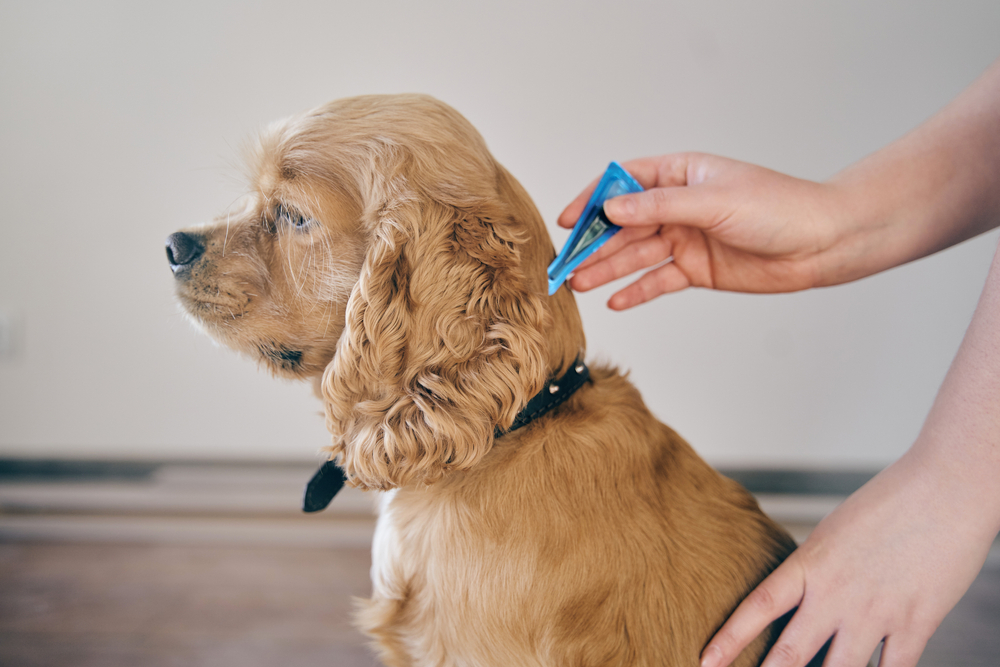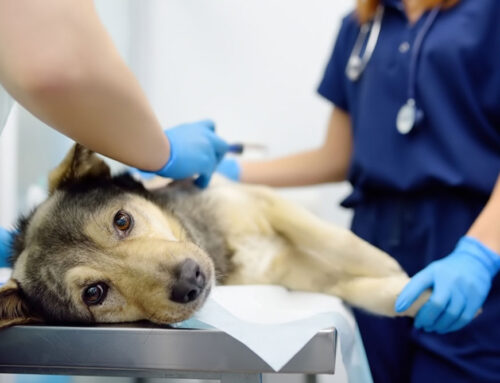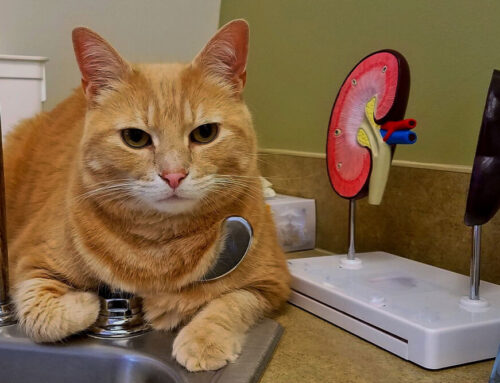When Itching Isn’t Just Allergies: Knowing When to Seek Veterinary Help
Your dog can’t stop scratching, or your cat licks until bald patches appear. Maybe you’ve tried oatmeal baths, over-the-counter sprays, or a new food- but nothing helps. When itching becomes constant, it’s more than uncomfortable- it’s a medical issue that needs attention.
At Southern Crossing Animal Hospital, our concierge-style care helps families uncover whether parasites, allergies, or infections are at fault. Acting early can stop the itch-scratch spiral before it turns painful or leads to infection.
Understanding the Causes of Itching in Pets
Common Triggers Behind Relentless Scratching
Parasites and Fleas
Flea allergies are among the most frequent causes of persistent itching. Even one bite can set off an intense reaction. Because only a small portion of the flea population lives on your pet, year-round parasite prevention is essential. Even indoor pets can be exposed through clothing or visiting animals. Mites and ticks can also contribute to skin irritation and should always be ruled out in itchy pets.
Allergies and Environmental Factors
Environmental allergies mirror human hay fever but show up as skin irritation instead of sneezing. Pollens, dust mites, molds, and even certain cleaning products can trigger reactions. Symptoms that worsen seasonally often point to pollen, while year-round flare-ups suggest dust mites or food sensitivities.
Skin Infections and Conditions
Constant scratching can break the skin, allowing bacteria or yeast to thrive. Yeast infections are especially itchy, often with a musty odor and red, greasy patches. Bacterial “hot spots” can develop in hours, especially in dogs that lick or chew constantly. Without treatment, these lesions can become painful, swollen, and require antibiotics or medicated cleansing.
When Itching Becomes an Emergency
A little scratching is normal- but constant chewing, crying, or bleeding means your pet’s comfort is gone. Warning signs include:
- Scratching that interrupts sleep or causes wounds
- Excessive paw-licking or head shaking
- Red, inflamed skin or hair loss
- Strong odors or oozing sores
Patterns and intensity of pruritus help determine whether itching stems from allergies, infection, or another condition. Persistent itching can lead to infection, fever, or even systemic illness- all reasons to seek veterinary care.
If your pet suddenly develops swelling around the face, hives, or difficulty breathing, it may indicate a severe allergic reaction that requires immediate emergency attention.
Diagnosing the Underlying Problem
Relief starts with finding the cause. Skin scrapings reveal mites or other parasites, fungal cultures detect yeast, and cytology identifies bacteria. Food trials and allergy testing uncover sensitivities, while blood work helps detect hormonal or internal conditions that mimic skin disease.
Southern Crossing Animal Hospital’s in-house diagnostic laboratory allows same-day testing for many common causes of itching. Our team can often pinpoint the issue during your pet’s visit, meaning treatment starts right away instead of waiting days for results. That speed matters- especially when every hour of scratching adds to pain and infection risk.
Treatment Options for Itchy Pets
When pets reach the “urgent care” level of itching, fast relief matters- but long-term control prevents relapse. Effective treatment combines topical care, targeted medication, nutritional support, and allergy management tailored to your pet’s needs.
Antihistamines and Steroids
Antihistamines can calm mild, seasonal flare-ups but rarely control severe cases on their own. They’re most effective when used preventively or in combination with other therapies.
Corticosteroids, used short-term, deliver powerful anti-inflammatory relief and often stop acute itching within hours. Because long-term use can cause side effects like thirst, weight gain, or behavioral changes, veterinarians typically transition pets to safer maintenance medications after the initial flare has resolved.
Apoquel and Cytopoint
Apoquel and Cytopoint work by blocking the nerve signals that cause itching. Apoquel tablets act fast- sometimes within a day- while Cytopoint injections can provide several weeks of relief. These modern therapies control symptoms without the broader immune suppression of steroids and are safe for long-term use in many pets. For dogs with recurring or seasonal allergies, they can dramatically improve quality of life.
Topical Therapies: The Foundation of Skin Relief
Topical therapy for allergic dermatitis is one of the most effective ways to calm inflamed skin and shorten recovery. Medicated shampoos, mousses, and sprays containing ceramides, chlorhexidine, or hydrocortisone help wash away allergens, kill microbes, and soothe irritation.
Routine bathing with gentle, veterinary-approved products removes pollen, dust, and yeast that perpetuate the itch cycle. For localized irritation- like the paws or belly- targeted sprays can bring fast relief without affecting the whole body. In many pets, consistent topical therapy prevents itching from ever reaching crisis levels again.
Allergy Testing and Immunotherapy
If itching returns after every season or persists despite medication, allergy testing can identify specific environmental triggers. Once known, allergen-specific immunotherapy (“allergy shots” or oral drops) can be customized for your pet.
Immunotherapy works by retraining the immune system to tolerate allergens rather than overreacting to them. Though it requires patience- results may take months- it’s the only treatment that addresses the root cause, not just the symptoms, and can significantly reduce the need for lifelong medication.
Nutritional Support
Healthy skin begins inside the body. Diets rich in omega-3 fatty acids, antioxidants, and premium protein sources strengthen the skin’s barrier and improve moisture balance. Dermatitis and nutrition’s role are well documented- omega-3 supplements, in particular, provide gradual, safe anti-inflammatory benefits.
Your veterinarian may recommend prescription skin-support diets or supplements designed to complement medication and topical therapy. Over time, proper nutrition helps break the cycle of inflammation and supports healing from within.

When to Seek Urgent Care
Most cases of itching can be managed with routine care, but some require immediate attention. If your pet is bleeding, lethargic, has open wounds, or seems painful to the touch, call right away. Severe allergic reactions, widespread infection, or signs of systemic illness need prompt evaluation.
Our emergency services are equipped to stabilize these cases quickly and provide the relief your pet needs to get comfortable again.
Partnering for Lasting Comfort
Regular veterinary wellness care allows us to identify small changes before they become major problems. Our Fear Free approach keeps visits calm and positive, helping itchy pets get the care they need without added stress.
If your pet’s scratching is keeping everyone up at night or causing raw skin, don’t wait. Call (901) 452-3171 or contact Southern Crossing Animal Hospital to schedule an appointment. Prompt treatment can stop the itch before it becomes a crisis- and help your pet finally rest easy.








Leave A Comment